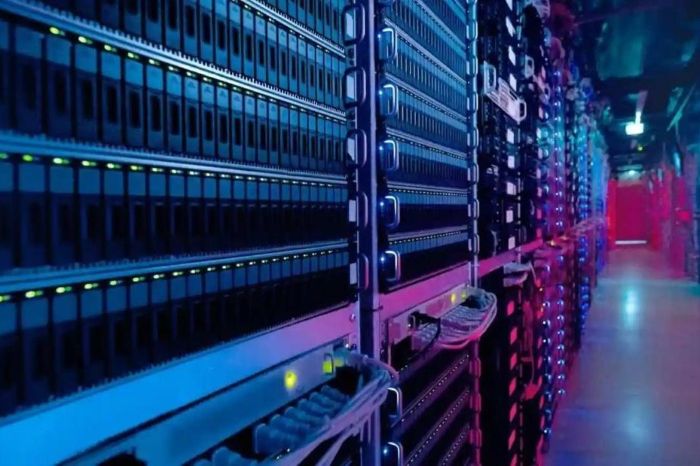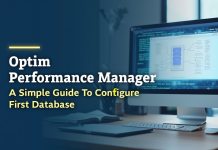Nobody gets excited about decommissioning a data center. It’s not flashy. It’s not something you post on LinkedIn with a “#SuccessStory” hashtag. But if you’ve ever been involved in one, you know how messy, stressful, and downright dangerous it can be when it’s not handled properly with the right decommissioning partner.
I’ve watched companies treat it like a side project — “We’ll just send a few people in to clean it out.” Then a few months later, they’re scrambling because a hard drive with sensitive data went missing, or a compliance audit uncovered gaps in documentation.
Trust me, those headaches are expensive, time-consuming, and totally avoidable.
That’s why choosing the right decommissioning partner isn’t just another checkbox — it’s the thing that keeps your reputation (and your sanity) intact.
Table of contents
Why You Can’t Afford to Wing It
Here’s the thing: a data center isn’t just a bunch of metal and wires. It’s the beating heart of your business’s digital life.
Every server, every drive, every switch is full of confidential data that can come back to haunt you if it’s not handled right.
And the risk isn’t just about data breaches — though that’s a big one. There’s also environmental compliance, asset recovery, and logistics.
The amount of coordination it takes to retire even a mid-sized facility without breaking something (or someone) is wild.
I’ve seen it happen — a team forgets to document serial numbers, a vendor skips secure transport protocols, or someone assumes “recycling” means tossing old gear in a bin. Two months later, that company is facing a fine or trying to track down missing assets.
You don’t want to be that company.

The Hidden Chaos Behind Decommissioning
On paper, the process looks simple: shut down, disconnect, remove. Easy, right? But once you’re in it, you realize there are a hundred tiny moving parts.
You’re juggling:
- Sensitive data destruction (because “delete” doesn’t mean gone)
- E-waste management (to avoid ending up on the wrong side of an EPA report)
- Cross-team coordination (IT, facilities, security, finance — everyone’s got a say)
- Tight timelines (because the lease is ending next week)
What makes it even trickier is that most in-house teams aren’t built for this. They know infrastructure. They know uptime. But decommissioning? That’s a different skill set entirely — part logistics, part compliance, part demolition crew.
That’s why finding the best data center decommissioning partner isn’t just nice to have — it’s how you stay out of trouble.
What the Best Partners Actually Do (That Others Don’t)
Here’s what separates the pros from the “we’ll figure it out” crowd.
The good ones? They’ve got systems. Real systems. Every cable, drive, and rack is tracked, tagged, and verified. They use certified data destruction software.
They document everything — down to the last serial number — so if an auditor ever comes knocking, you’re covered.
They also understand that this isn’t just about tearing things down. It’s about protecting data, people, and the planet all at once.
The best decommissioning companies think like project managers and compliance officers, not just movers.
And let’s not forget transparency. If your vendor can’t explain how they handle chain of custody, or they avoid talking about certifications (R2v3, NAID AAA, ISO 27001 — all the important ones), that’s your cue to run, not walk.

What to Look for (and What to Avoid)
If you’re evaluating partners, here’s my personal checklist — hard-earned from watching a few too many projects go sideways:
1. End-to-end service. The right partner should handle everything — inventory, data destruction, equipment removal, recycling, and reporting. If they outsource parts of it, make sure they still own the process.
2. Certifications that actually mean something. R2v3 and NAID AAA are a must. Don’t settle for vague “industry-compliant” language.
3. Proven experience with complex projects. Ask for examples. If they’ve never handled a multi-site or regulated industry job, you don’t want them learning on yours.
4. Transparent reporting. You should get full visibility — chain of custody logs, certificates of destruction, sustainability metrics, the works.
5. Responsiveness. You can tell a lot from how they communicate before you sign a contract. If it takes them a week to reply to your emails now, good luck once the project’s underway.
The right partner will talk about process, not just pricing. Because here’s the catch — the cheapest quote almost always ends up costing you more later.
When Decommissioning Goes Global
Now, if your company operates across countries — or even just across states with different regulations — you’ll want to look for international data center decommissioning services.
Why? Because compliance doesn’t play nice across borders. What’s acceptable in Texas might violate GDPR in Germany.
And if you’re moving equipment or data between sites internationally, you need someone who understands those regional nuances.
The better move is to work with a single global partner — someone like Reconext, for example. They specialize in international data center decommissioning services, which means they can handle logistics, data security, and compliance under one roof.
One process. One set of standards. Way fewer headaches.
Making It Smooth (and Sanity-Saving)
So, let’s talk about how to make your decommissioning project actually go smoothly — because “smooth” and “data center” rarely go in the same sentence.
Here’s what I’ve seen work, every single time:
1. Start early
Get your asset inventory in order. Know exactly what’s there, what’s active, and what can go. You can’t protect what you can’t account for.
2. Secure your data first.
Never — and I mean never — move equipment off-site until you have certified data destruction. On-site wiping or shredding is ideal, but if it’s done elsewhere, make sure the chain of custody is bulletproof.
3. Think green.
The best partners don’t just “dispose” — they recycle, refurbish, and recover value. That’s good for the planet and your budget.
4. Keep everyone in the loop.
IT, compliance, finance — everyone should know what’s happening and when. It’s amazing how many issues come down to poor communication, not poor execution.
And after it’s all done? Ask for a full post-project report — certificates of destruction, recycling data, and asset recovery summaries. That documentation isn’t just nice to have; it’s your insurance policy.
The Real Difference: Mindset
Here’s what I’ve noticed about the truly great partners: they don’t treat decommissioning like disposal. They treat it like risk management.
They get that this work isn’t glamorous, but it’s vital — and they handle it with the seriousness it deserves.
They plan meticulously. They communicate clearly. They adapt when things inevitably change. And they don’t disappear once the last rack is gone — they follow up, they document, and they stand by their work.
That mindset is rare, but when you find it, it’s worth holding onto.
Wrapping It Up
At the end of the day, the best data center decommissioning partner is the one who helps you close this chapter safely, cleanly, and confidently.
Someone who protects your data like it’s their own, understands compliance better than your auditors do, and makes the process look way easier than it actually is.
If you want that kind of peace of mind — especially across multiple sites or countries — look for a provider with true international data center decommissioning services.
Companies like Reconext have built entire teams around this kind of work: secure, compliant, and sustainable decommissioning for enterprise clients around the globe. They don’t just remove old hardware; they help you move forward without looking back.
Because when it comes to decommissioning, the real goal isn’t just to tear down — it’s to wrap up one era of your infrastructure so you can start the next one with confidence.











